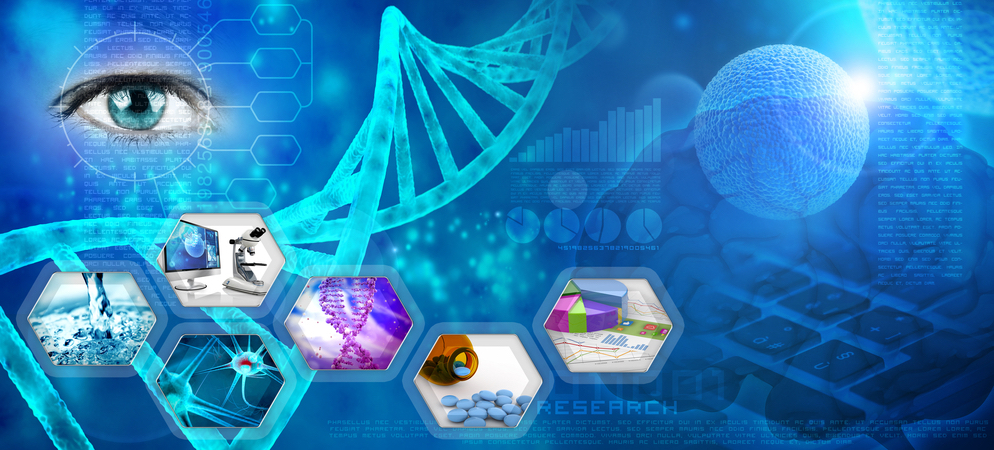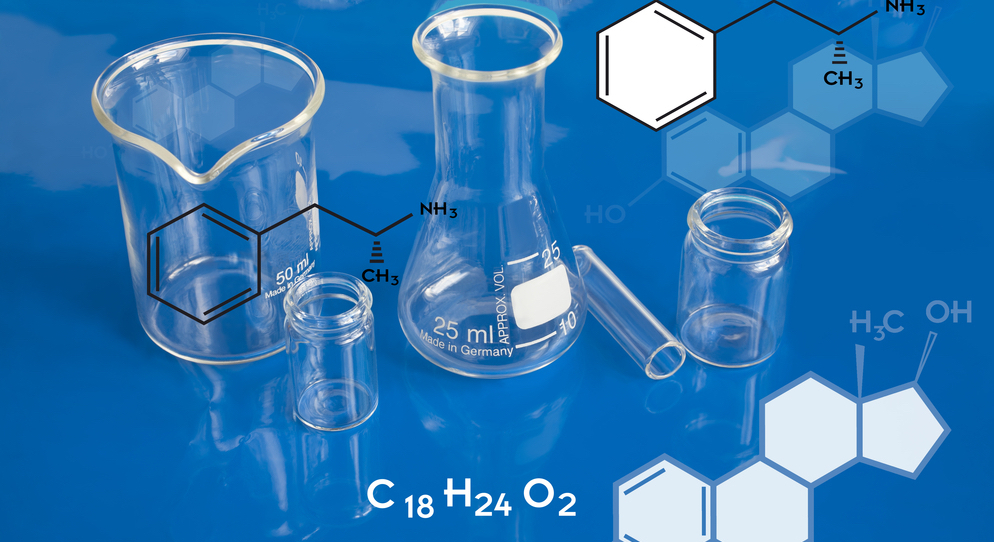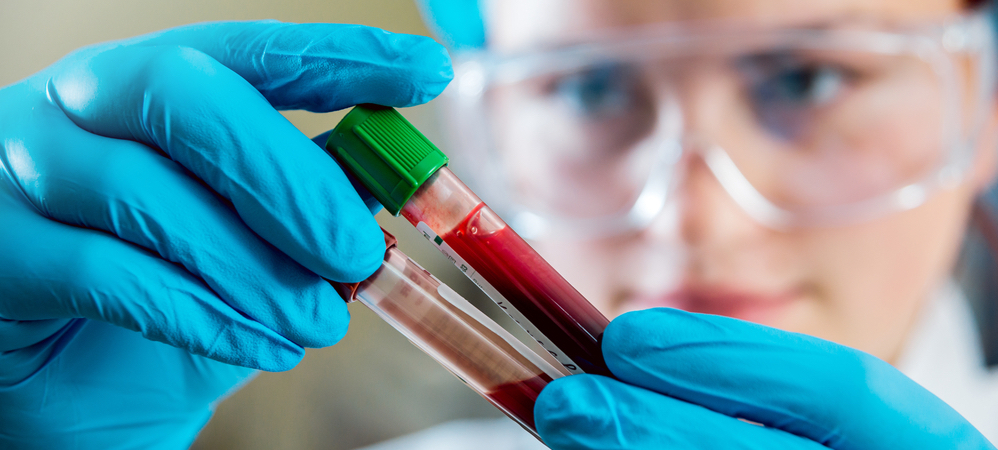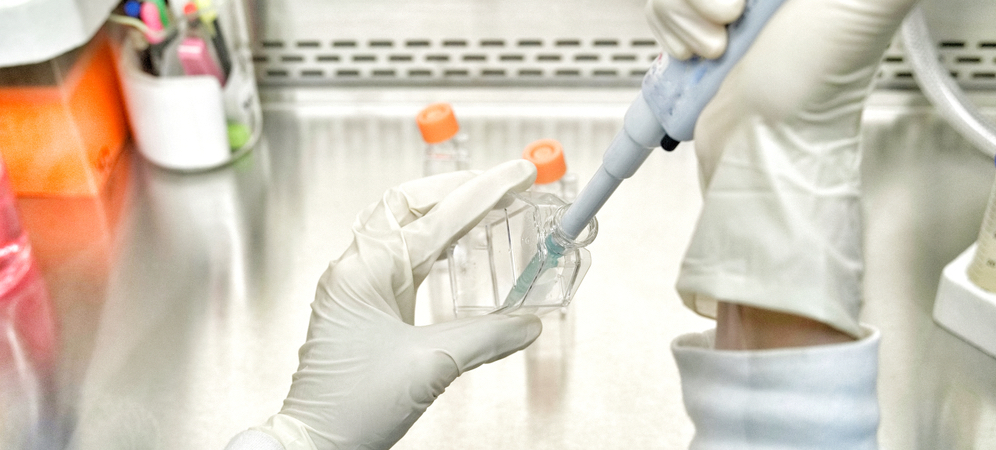



Get new exclusive access to healthcare business reports & breaking news




Artificial Intelligence in pharma refers to the system of interconnected and automated technologies in the biotech industry which can function autonomously, with little or no human intervention. AI is an emerging technology that is finding its way into many facets of the pharma sector, from drug development to diagnosis and even patient care.


Despite being years away from making its greatest impacts, AI is already making biotech executives across the board excited. In fact all of the big players are already dabbling with artificial intelligence in pharma use-case scenarios (more below).
According to The State of AI: Artificial Intelligence in Business, 62 percent of businesses are thinking of investing in AI soon. In fact, 20 percent of the businesses have already used artificial intelligence to replace or avoid recruiting new workers in the last 12 months. But, given that 72% of companies already believe that Artificial Intelligence will be of paramount importance to how they do business in the future, this is just but the tip of the iceberg.
No matter how you look at it, AI will certainly change every aspect of our lives.
More importantly, executives across the pharma industry are looking at ways to leverage AI in their line of business, including healthcare (or the biotech industry to be more precise).
In addition, various big pharmaceutical players are already getting their feet wet in the world of machine learning and artificial intelligence.
In fact, all of the 10 so-called Big Pharma companies (namely Novartis, Roche, Pfizer, Merck, AstraZeneca, GlaxoSmithKline, Sanofi, Abbvie, Bristol-Myers Squibb and Johnson & Johnson) have either expressly collaborated with or acquired Artificial Intelligence technologies to take advantage of the opportunities AI brings to the table.
Take F. Hoffmann-La Roche AG, for instance.
The giant European pharmaceutical company has been on an acquisition spree, targeting later-stage and mature healthcare AI startups. Roche has partnered with Owkin, the French data science, and AI firm to speed up drug discovery, development, and trials. Roche also bought Flatiron in a bid to use AI to accelerate cancer research and improve patient care; Syapse on AI-powered healthcare software and precision medicine; and, GNS Healthcare, the big data analytics company based in Cambridge, Massachusetts.
Novartis, on the other hand, has joined hands with Massachusetts Institute of Technology, IBM Watson, Quantumblack, and Intel to propel its AI ambitions. GlaxoSmithKline also hasn’t been left behind, having made partnerships with a plethora of AI companies, including Exscientia, BERG, Cloud Pharmaceuticals, and Insilico Medicine. Of all the companies on this list, Novartis is definitely leading the way in leveraging artificial intelligence in pharma use cases with investments ranging from drug trials, drug discovery and patient analytics projects.
Many pharma executives see Artificial Intelligence as a positive force. That’s why they are looking for AI partnership and acquisition opportunities left, center, and right.
And while most of these partnerships related to drug discovery/development, some focus on clinical trials and advanced patient care, owing to the advanced level of available Artificial Intelligence technologies.
In this deep-dive article, we will explore the most remarkable artificial intelligence investments, use-cases and achievements every pharma executive should be aware of in 2019.


Here’s the troubling fact: 9 out 10 clinical drugs fail to make it to trials, and a lot more don’t reach [FDA] approval stage, driving the costs of drug discovery and development through the roof.
In fact, as we reported before, the associated costs of developing new drugs stagger at around $1.2 billion.
That’s huge, and these costs are often passed down to the patient, making drugs inaccessible to most people, and especially those who are uninsured or underinsured.
The good news is that Artificial Intelligence, alongside Machine Learning and Big Data, has great potential to slice down the costs of new drugs R&D spend, which for the 10 biggest pharma firms is close to $70 billion annually.
Against this background, there are a few companies out there which are using AI to redefine pharma and cut drug development times.


A multi-facetted biotech firm based in Toronto, Cyclica is redefining drug discovery and development by equipping pharma with AI-augmented and cloud-based platforms that improve how scientists design, screen, and customize drugs.
Though this partnership, Bayer will take advantage of Cyclica’s cloud-based proteome screening Ligand Express® platform to gain more insights into the polypharmacological profiles of small molecules.
This will help drug investigators at Bayer to dig deeper into off-target profiles of peptides (small protein molecules) and as a result, generate next-level predictive models for pharmacokinetic properties.
They will also combine Cyclica’s Differential Drug Design technology and AI platform to come up with multi-targeted, state-of-the-art drug designs. This is a step up in the world of drug discovery and investigation. On the other hand, Cyclica will in return improve upon its integrated network of enabling AI-powered innovations.
Why does Cyclica + Bayer AI collaboration matter?
Given the challenges currently faced by big pharma, there’s a huge demand for advanced technologies that make it easy to identify and validate new drugs. That’s exactly what the partnership is all about: using AI to make designing drugs more efficient. It not only improves drug quality but also allows personalization in the drug R&D process.


The duo has developed an AI-driven software that looks to redefine clinical decision-making of CTEPH, a rare form of pulmonary hypertension.
Aptly referred to as CTEPH Pattern Recognition Artificial Intelligence, the software just received an FDA clearance to help detect this chronic condition that affects approximately 5 individuals per million annually around the globe.
How does CTEPH Pattern Recognition Artificial Intelligence Software work?
The tool employs machine learning to comb through image findings from pulmonary vessels, lung perfusion, and cardiac check-ups, as well as the clinical history of the patient. This way, radiologists will be able to analyze these images quickly and efficiently to zero in on patients with chronic thromboembolic pulmonary hypertension (CTEPH).
The benefits of CTEPH Pattern Recognition Artificial Intelligence Software are vast:
Why is this AI-powered healthcare software important?
CTEPH not only affects 5 people in every 1,000,000, but its symptoms are also very similar to those of other conditions like COPD and asthma.
Needless to say, this can hinder the diagnosis of CTEPH in many different ways. Thankfully, that’s where CTEPH Pattern Recognition Artificial Intelligence software jointly developed by Merck and Bayer comes into play.


The scientists at the Novartis Institute of BioMedical Research (NIBR) are using AI technology to gather, analyze, and gain insights from clinical trial data from an array of internal sources.
The end-game at Novartis is to keep track of trial enrollment, as well as a predict associated costs and quality assurance. The results have been quite surprising, with the Institute reporting a 10-15 percent decrease in the patient enrollment times, especially during early-stage clinical trials.
But that isn’t all there’s to AI at Novartis.
The Basel-based pharmaceutical company is also leveraging Machine Learning, Deep Learning and a plethora of other healthcare technologies like Big Data to accelerate the discovery and development of new drugs.
How does AI transform the way researchers at Novartis discover and develop new drugs?
Great question. Turns out, the same technology that allows you to tag photos on social media platforms like Facebook or Instagram can be leveraged to sort through and group a series of digitized images of cells treated with concoctions of different experimental compounds.
Scientists at Novartis are leveraging deep learning to mimic how our eyes and brains process photographic information. The human eyes use highly connected neural networks to transform perceived light patterns into shapes and colors we associate with familiar faces, objects, and other things around us.
Borrowing a leaf from this, the folks at Novartis taught a computer algorithm to recognize subtle changes in cells when treated with certain experimental compounds. The computer “neural network” predicted almost 100% the results for cells treated with 100 mysterious compounds, even at the various level of dosage.
In other words, Novartis’ machine learning algorithms are able to classify compounds with the same visual effects on particular cells – and do it with incredible speeds. That means drug discovery insights that would otherwise take months, if not years, for humans to generate will only take a matter of minutes (if not seconds!)
“Machine learning is pointing us to new therapeutic possibilities with unprecedented efficiency … And it has an unparalleled ability to teach us about how our drugs are working,” states Head of Informatics for Chemical Biology and Therapeutics at NIBR, Jeremy Jenkins.
And he’s dead right on the money.
Using Machine Learning has a wide potential of shrinking significantly the timelines for the discovery and, therefore, development of new drugs. More crucially, discovering drugs quickly and efficiently means that patients will be able to get access to new drugs and therapies faster. It’s a win-win situation.


The partnership will see the reduction of time to take drugs to market for treatment of conditions caused by defects in mitochondrial function. It essentially brings together the powerful drug research experience at Boehringer and state of the art TIME drug discovery platform to discover new medicines for ALS, Parkinson’s disease and Alzheimer’s disease.


Even better, as we previously reported, the San Francisco-based drug discovery company secured $32 million in Series A funding back in 2018.
The team at Verge Genomics, including 10 doctors with deep knowledge and experience in neuroscience, applied math, biostatistics, drug development, machine learning, and biophysics, has created one of the most comprehensive gene data sets. They leverage AI, Big Data, and Machine Learning to gather and analyze these data sets to speed up drug discovery and development, especially during preclinical trials.
What’s the benefit of using AI at Verge?
If Verge’s machine learning-driven approach works as intended, it will reduce drug development process for discovering several different life-saving therapies for brain diseases like ALS, Alzheimer’s disease, Autism, and Parkinson’s disease, just to mention a few.
More specifically, Verge will use artificial intelligence to keep track of the impact certain therapies have on the human brain with a particular focus on the preclinical phase. As such, big pharma can catch a glimpse of how effective their drugs on brain cells before they pour oodles of money into clinical trials. And given that all these neurological disorders are currently incurable, this approach will certainly come in especially handy.
Why does Verge’s AI approach matter?
Taking a drug from discovery to market is currently prohibitively expensive.
In fact, according to Tufts Center for the Study of Drug Development, taking a single drug through the Research & Development phase and the Food & Drug Administration approval phase usually sets back big pharma around $1.3 billion. That’s not to mention that the whole process is extremely tedious and can last up to 12 years.
Against this background, Verge Genomics promises to streamline the entire drug development process with help of machine learning. By doing so, the company can chip a huge chunk off of the $2.6 billion it currently costs pharmaceutical companies to take a single drug to the market.


The Irish startup Naritas leverages AI and other novel technologies to facilitate the discovery of new and more robust food and healthy ingredients.
BASF will take advantage of this partnership to develop novel functional peptides derived from natural foods.
In practice, BASF will use Nuritas AI and DNA analysis capabilities to predict, analyze, and validate peptides from natural sources. The main goal of BASF is to discover and deliver to the market peptide-based therapies that’ll help treat conditions like diabetes.


AI can become useful when it comes to monitoring and managing known diseases with no known cure, including Parkinson, Autism, Alzheimer’s disease, and ALS. And there are a few examples that are lighting the way for faster diagnosis and therefore better monitoring and management of these conditions:
For instance, Chinese tech giant, Tencent Holdings, just recently formed a partnership with UK-based Medopad to craft an AI system that will help monitor Parkinson’s patients remotely. This way, the time it takes to carry out a motor function assessment of a patient with Parkinson’s disease will reduce from more than 30 minutes to under 3 minutes.
Another great example is Abbvie and Mission Therapeutics collaboration that’ll develop DUB inhibitors that promise to treat two currently incurable conditions, Parkinson’s and Alzheimer’s diseases. With over 50 million Americans struggling Alzheimer’s and dementia, this AI partnership will bring treatment closer and hope for many.




Example 1: Abbvie Collaborates with AiCure in using AI for Drug Adherence:
Abbvie partnered with New York-based AiCure to enhance drug trial vigilance and improve drug adherence. In this collaboration, Abbvie used facial and image recognition algorithm of AiCure mobile SaaS platform to monitor adherence. To be more specific, the patients take a video of themselves swallowing a pill using their smartphones, and the AI-powered platform confirms that indeed the correct person swallowed the right pill. And the results were amazing, improving adherence by up to 90%.
Example 2: Bayer Collaborates with Genpact to use AI to Improve Pharmacovigilance
Genpact’s AI solution has been used severally in clinical trials to change the dosage given to specific patients to optimize the results. In this partnership, Bayer takes advantage of Genpact’s Pharmacovigilance Artificial Intelligence (PVAI) to not only monitor drug adherence but also detect potential side effects much earlier.


Case 1: IBM Watson + Pharma
IBM Watson is an AI platform that proven quite handy for big pharma. When it comes to clinical trial matching, many companies are working with IBM Watson to make sense of better data. These companies include Highlands Oncology Group, Mayo Clinic, Perficient Partners, Medtronic, Illumina, Pfizer, Merck & Co., and Bristol-Myers Squibb, just to name a few.
Case 2: Apple Researchkit + AI
Apple’s Researchkit makes it easy for people to enroll in clinical trials and studies without having to go through physical enrollment. It’s a clinical research ecosystem designed around its two flagship products, the iPhone and the Apple Watch. Duke University, for instance, uses patient data collected by these Apple devices and AI-driven facial recognition algorithm to identify children with autism. And that isn’t all; Researchkit has made it easy to make better sense of collected health data.
Case 3: Arpeggio Biosciences
Arpeggio Biosciences, a machine learning company, also use AI to aggregate and synthesize information for better data analytics.


With over 18,000 clinical studies currently recruiting candidates in the US, the $65 billion clinical trial market needs an overhaul. Extracting useful data from patients’ records is perhaps the biggest challenge for pharmaceutical companies. Thankfully, that’s where AI and machine learning comes into the picture. Here are two AI tech startups are doing a bang-up job:
Again, clinical trials matching is a big issue for big pharma. Deep 6 uses Natural Language Processing and Deep Learning, two key aspects of Artificial Intelligence, to streamline and automate the whole process. Currently, they are working with TD2 (an oncology CRO) and Cedars-Sinai Medical Center. The startup has already secured $150K in funding.
Like Deep 6, antidote leverages NLP to make exclusion/inclusion criteria in clinical studies and trials a breeze. And their AI-powered process is simple. Potential patients are asked to answer a few questions on antidote search-enabled platform. By matching their answer, the platform can deliver a list of recommended trials the patient can enroll in.
While AI has an extensive potential to help redefine the pharmaceutical industry, the adoption itself is not an easy walk in the park.
Here are a few lessons and challenges that pharma companies face while trying to adopt AI:
Despite all these limitations, one thing is for certain: AI is already redefining biotech and pharma. And ten years from now, Pharma will simply look at artificial intelligence as a basic, everyday, technology. The only question is how long will pharma executive wait till they jump on the wagon and leverage AI to improve their operational efficiency, outcomes and profits.